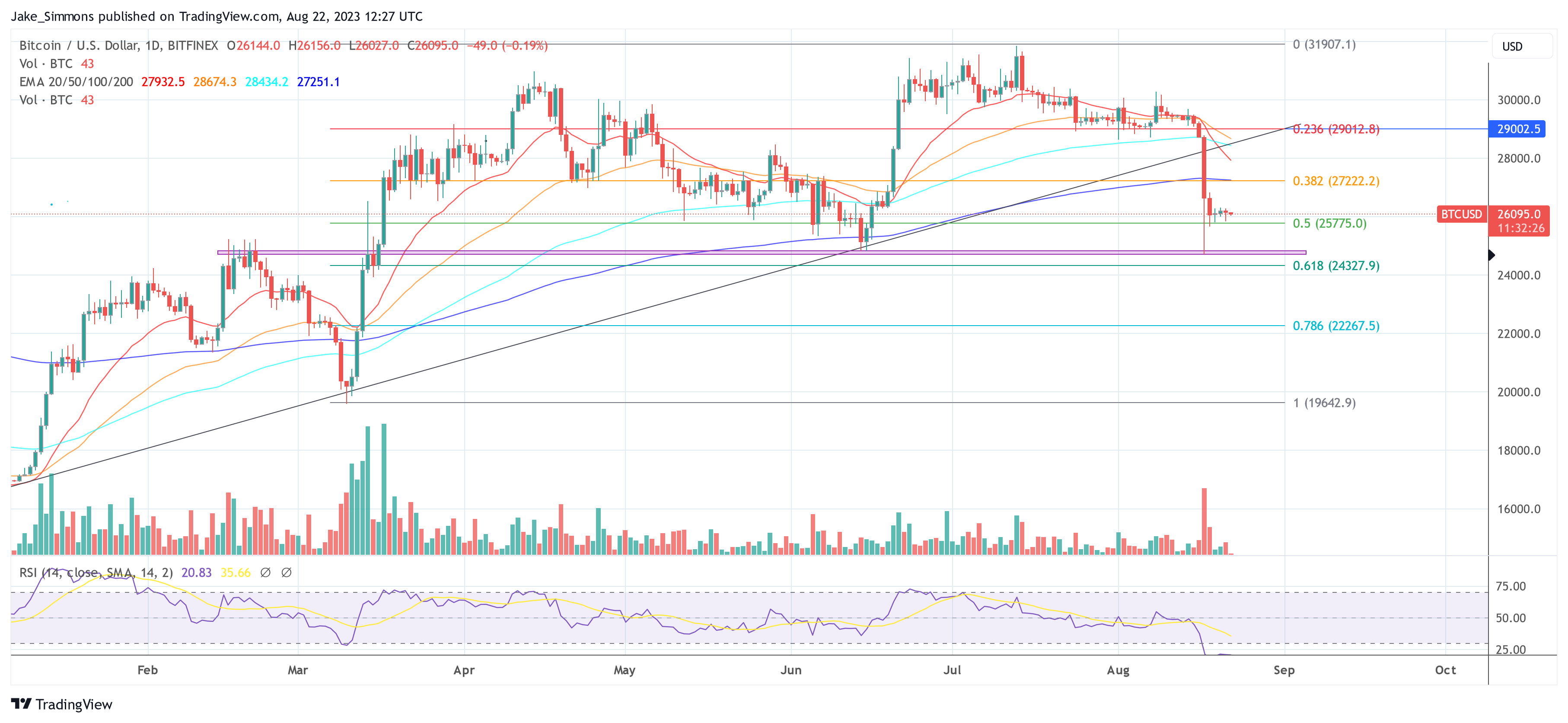In the Bitcoin space, a new battle is brewing over a proposal which is igniting passionate debates. Bitcoin Improvement Proposal 300 (BIP300) and its accompanying BIP301 introduce a paradigm-shifting concept known as “Drivechain.” This proposal, which carries the potential to redefine the future of BTC and its relationship with altcoins, has sparked fervent discussions among experts and enthusiasts alike.
What Is Drivechain?
At its heart, Drivechain introduces the concept of “sidechains,” offering an alternative approach to scaling and expanding the functionalities of the network. These sidechains, outlined in BIP300 and BIP301, allow Bitcoin to create, send, and receive BTC to and from layer-2 networks, known as “sidechains.”
Remarkably, Paul Sztorc, the driving force behind BIP300 wants to implement the change via a soft fork. Core developer Luke Dashjr’s draft rewrite of BIP-300 is out already. Sztorc argues: “The soft fork was invented because it was too difficult to get full consensus on every change… it protects users from bad devs, and bad software — no effort or expertise needed.”
Nikita Chashchinskii, a software developer deeply involved with BIP300, posits that BIP300 could address critical challenges facing Bitcoin, offering a new avenue for change while avoiding contentious upgrades to the mainchain. Chashchinskii believes that Drivechain could transform Bitcoin into a dominant force by absorbing the best features of competing cryptocurrencies, potentially creating a monopoly.
Furthermore, he contends that Drivechain presents a viable solution to BTC’s future security budget woes, sidestepping problematic alternatives like tail emission or proof of stake.
Remarkably, sidechains, as proposed, wouldn’t require new assets; BTC could be deposited and withdrawn at a 1:1 exchange rate, mitigating concerns of fragmentation and competition. The existing hash rate would secure sidechains, while transaction fees would bolster Bitcoin’s security budget.
The proposal envisions Bitcoin with a portfolio of sidechains, with each sidechain’s inclusion determined by its potential to generate transaction fees. Miners, driven by profit motives, would activate sidechains, shaping BTC’s development based on users’ revealed preferences.
Opposing Opinions From Bitcoin Industry Voices
However, Drivechain is getting a huge backlash from the BTC community. Among others, Ari Paul of BlockTower challenges Sztorc’s opinion on soft forks, casting them as “centralized authoritarianism” that empowers a minority to enforce changes, potentially compromising the essence of decentralized networks. According to Paul, “Soft forks always seemed like ‘centralized authoritarianism’ (to oversimplify) to me. Even if 90% of the community rejects, a minority can still effectively force change on the network.”
Pierre Rochard, Vice President of Research at Riot Platforms, delivers a pointed critique of Drivechain’s messaging and intentions. He asserts, “Drivechain’s ‘force a soft fork to kill sh*tcoins’ marketing somehow manages to be both anti-Bitcoin and anti-‘crypto’. Also pure hopium. It’s a distraction. Strong NACK.” Rochard’s reservations underscore the complexities surrounding BIP300, exposing the divergent viewpoints even within the community.
Meanwhile, Jimmy Song, a prominent Bitcoin educator and OG, shares similar concerns. He argues that the marketing tactics employed to promote Drivechain won’t be successful. “Paul Sztorc has openly stated that Drivechains will eliminate 99.9% of altcoins. While the claim has been made, there is little evidence to support it,” says Song, adding that “this means drivechains’ value is as a technical playground, which undoubtedly has value but prompts the question: Is it worth implementing through a soft fork in Bitcoin?”
Will Cole from Zaprite app challenges the premise that Bitcoin is losing value to altcoins, asserting that altcoins primarily aim to enrich their creators:
The premise for BIP300 that Bitcoin is losing value to altcoins is nonsense. There is no value being created “outside” Bitcoin in the altcoin space. People do not create altcoins due to Bitcoin missing features. They create altcoins to enrich themselves. Drivechains don’t change that.
Phil Geiger from Unchained questions the necessity of Drivechain, suggesting that there are already multiple ways to create tokens: “You can already do shitcoins on Bitcoin in like 5 different ways. We don’t need another way.”
Alex Gladstein from the Human Rights Foundation also challenges the idea that Drivechain would deter the issuance of altcoins on BTC-based systems, highlighting the profit-driven nature of many altcoin projects:
My main question is why do people think altcoins would all of a sudden be issued on Bitcoin-based systems should this come to pass? So so so many altcoins are created primarily to enrich the issuers. Would it be easier to scam people on a drivechain?
News Drama Unfolding?
As the crypto community grapples with the implications of BIP300 and Drivechain, a profound debate unfolds, highlighting the clash between differing ideologies and visions for the future of Bitcoin. While proponents champion Drivechain’s potential to reshape BTC’s trajectory and bolster its capabilities, skeptics raise concerns about the necessity of BIP300 and the appropriateness of the soft fork mechanism.
At press time, BTC traded at $26,095.

by Jake Simmons via Bitcoinist.com
Comments
Post a Comment